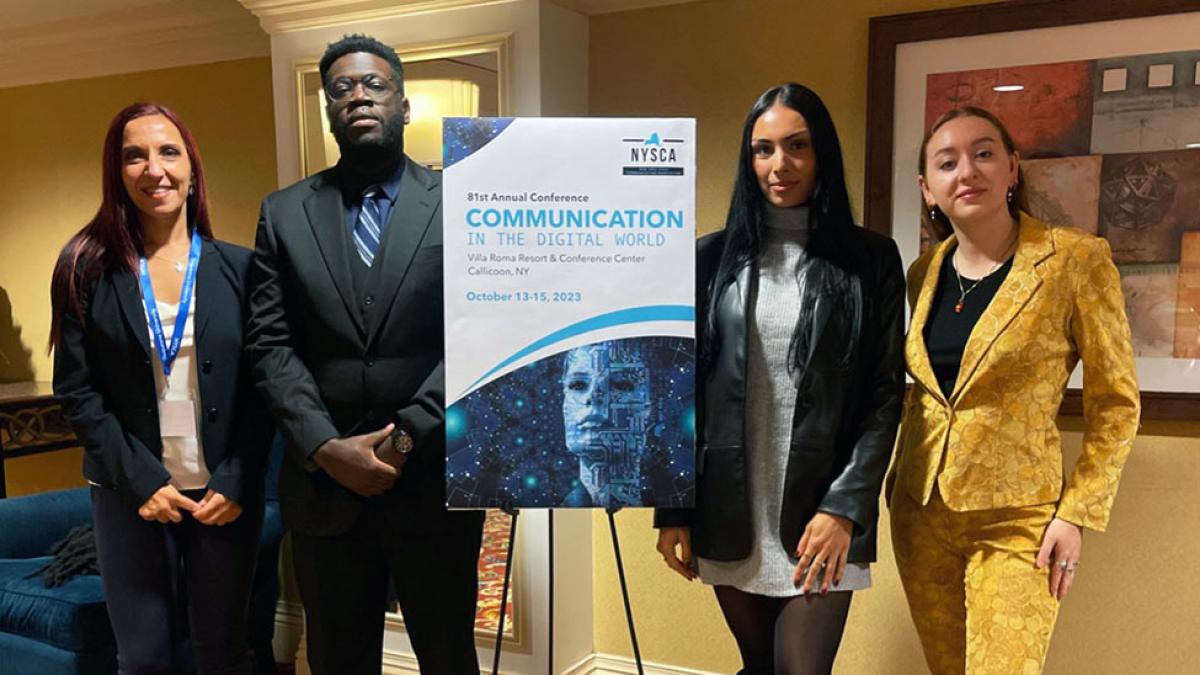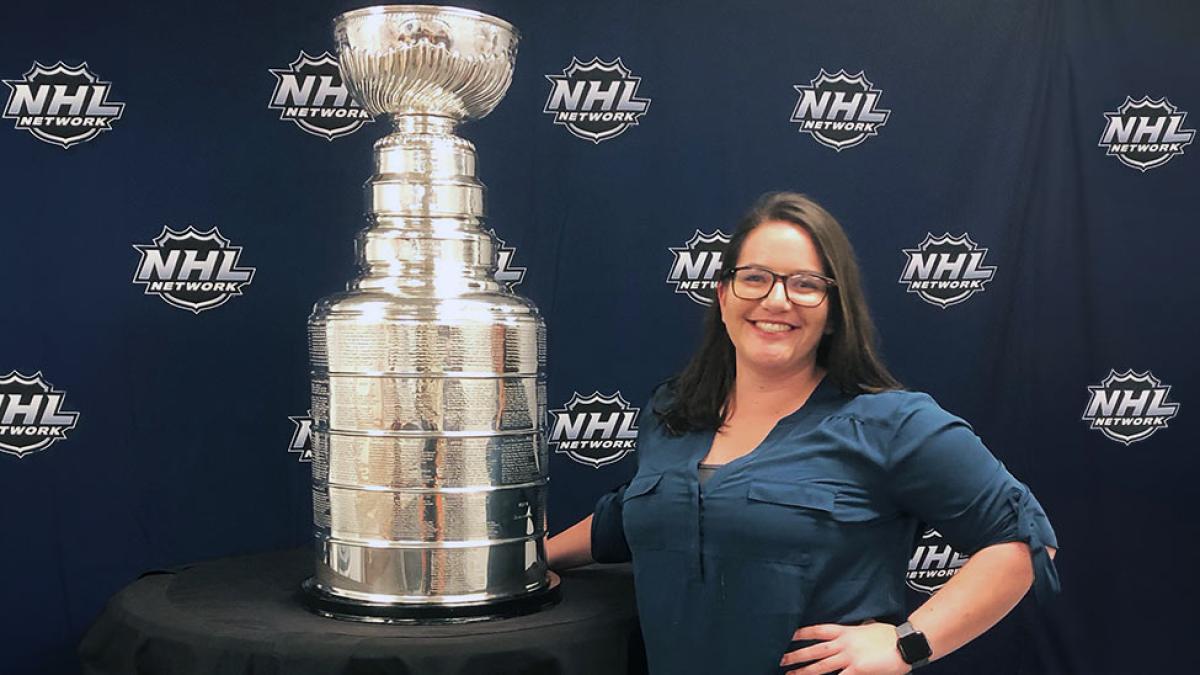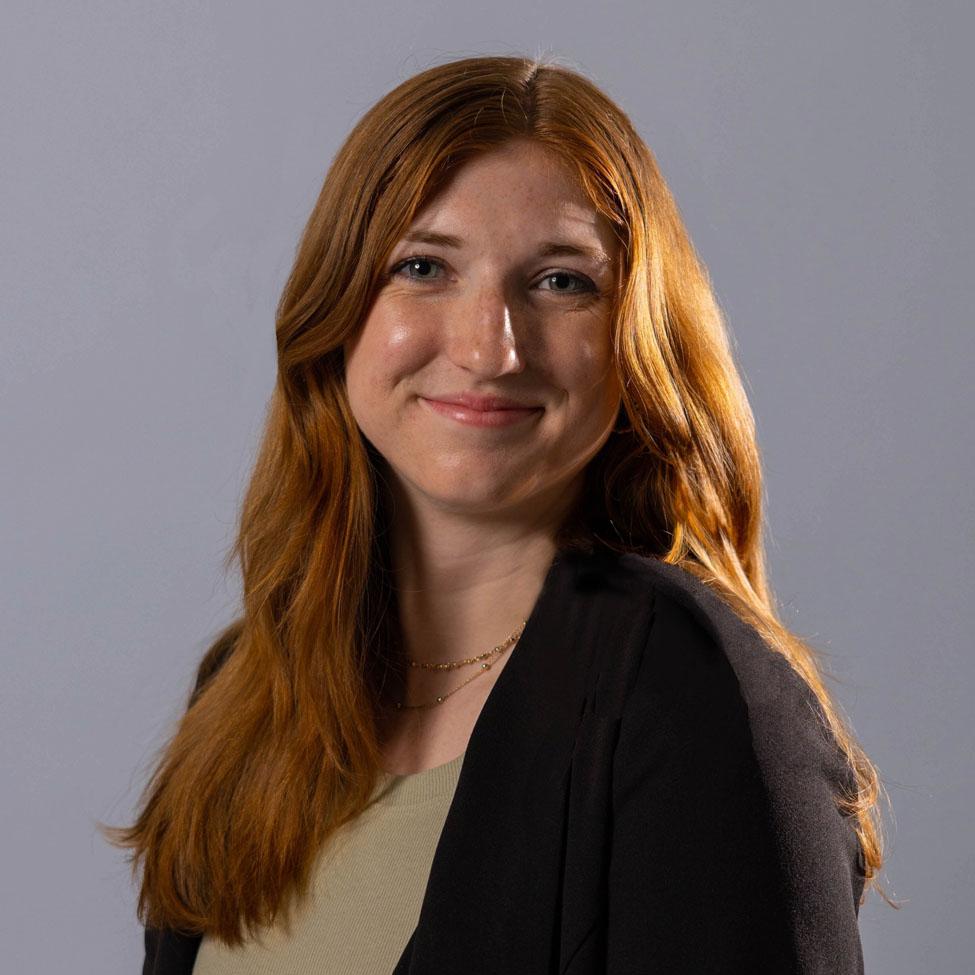
Ohio Prosecutors Broke Rules To Win Convictions And Got Away With It
Professor Bennett Gershman provides expert insight to NPR about how Ohio prosecutors broke rules to win convictions and got away with it.
Former prosecutor Bennett Gershman, who now teaches at Pace University's School of Law in New York, called the pattern of prosecutors who repeatedly act improperly in cases in Ohio a "microcosm" of the criminal justice system in states across the country.
Where Innovation Meets Expertise: Pace University’s Seidenberg School At The Forefront Of The AI Revolution
Seidenberg Dean Jonathan Hill along with Professor’s Christelle Scharff and Juan Shan are featured in amNY about Pace University being at the forefront of the AI revolution.
50+ New Year’s Facts – Traditions, Spending & More
Lubin Professor Larry Chiagouris speaks with WalletHub about people’s spending habits in the New Year.

Pace Law Team Remains Undefeated In National Trial League Competition
The Elisabeth Haub School of Law team for the National Trial League Competition broke a record this year as they were the only school to remain undefeated in the National Trial League’s regular season, with a solid finish of seven wins and zero losses.
Pace University Unveils New Cybersecurity War Room
News 12 featured Pace University’s new Cyber-Range at the Pleasantville campus. The new technology is designed to simulate real-world cyber threats.
"We try and teach them how to use the defensive tools to identify when an attack is going on," said clinical professor Joe Acampora, Seidenberg School of CSIS at Pace University.
Press Release: Pace University to Launch Game Development Program for Fall 2024
Pace University’s Seidenberg School of Computer Science and Information Systems is launching a new Bachelor of Science (B.S.) program in Game Development starting in Fall 2024.
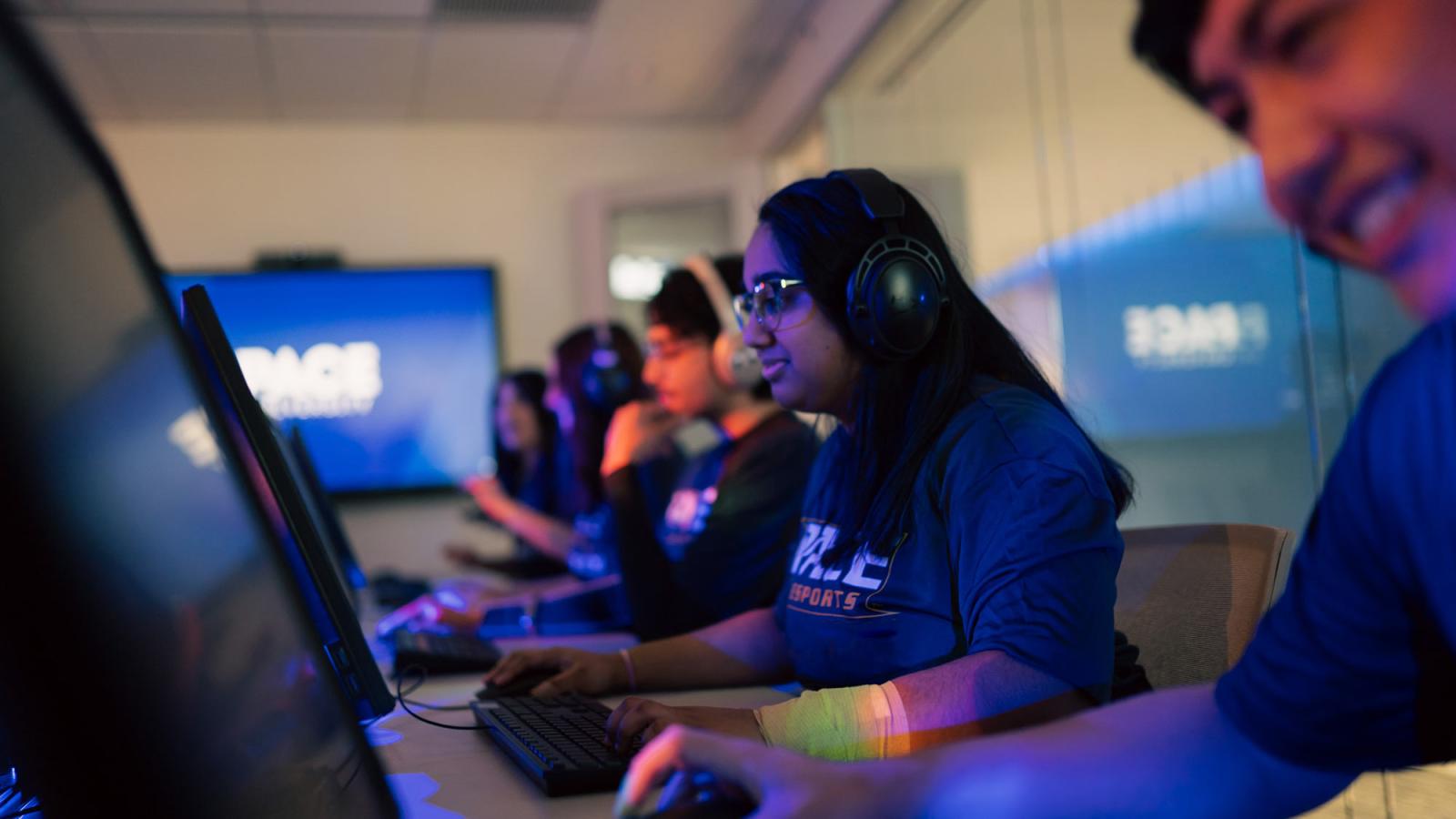
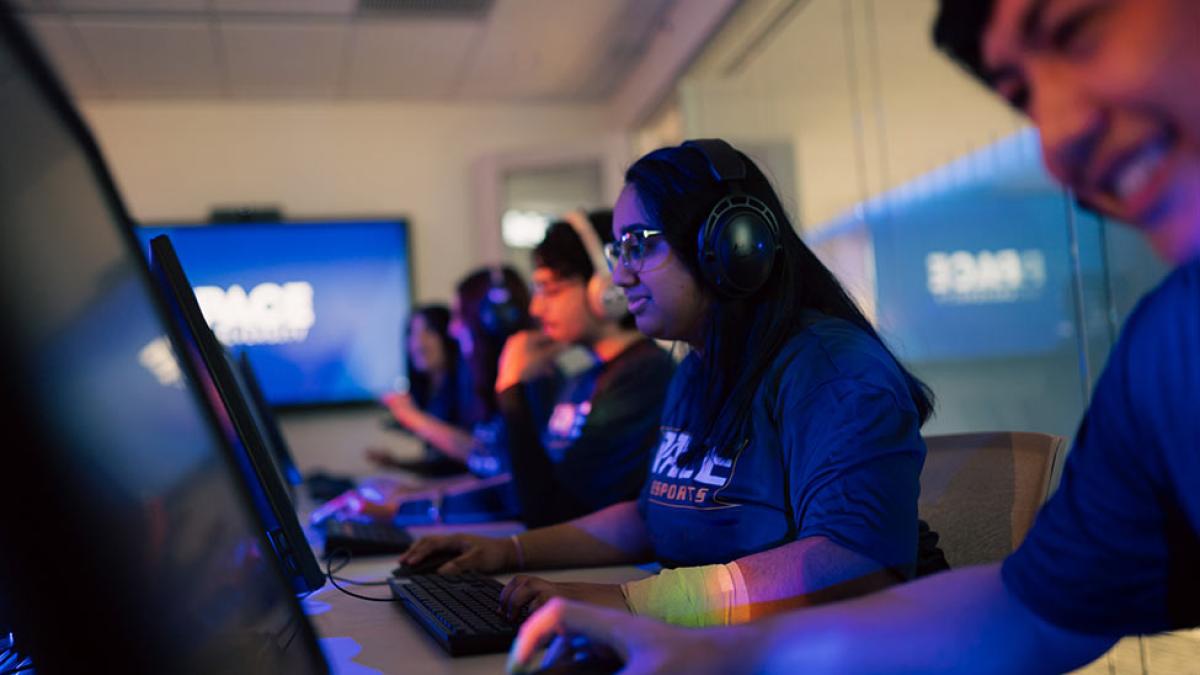
Graduates of the Program Will be Prepared for Jobs in the Booming Video Game Industry
Pace University’s Seidenberg School of Computer Science and Information Systems is launching a new Bachelor of Science (B.S.) program in Game Development starting in Fall 2024.
The video game industry is booming. Statista, a global company that collects data, insights, and statistics in over 170 industries, reports that revenue from the worldwide gaming market was estimated at almost $347 billion in 2022. Now, Pace students will have the opportunity to either create the next mobile sensation or pursue roles at esteemed companies like Nintendo, Microsoft, or Sony, among others. The technical skills and storytelling abilities acquired through the B.S. in Game Development will prove invaluable as students embark on their professional journey.
“We are pleased to expand the Seidenberg undergraduate offerings to game development, a rapidly growing industry that impacts not only entertainment, but education and healthcare as well,” said Jonathan Hill, dean of Seidenberg School of Computer Science and Information Systems. “Gaming fits well into the Seidenberg student profile—where technology meets creativity meets entrepreneurship.”
The program will provide undergraduate students with the fundamental knowledge and abilities in computer science, art, design, and narrative. Graduates will emerge as well-rounded game developers possessing a highly sought-after skill set. With a strong emphasis on hands-on learning, students will engage in extensive project coursework to develop games across various genres and styles. They will apply their learning to build real, playable games to add to a diverse portfolio to showcase in future job interviews.
The B.S. in Game Development program supports various career paths, including roles such as Gameplay Programmer, Virtual Reality Software Developer, Mobile Developer, AI Programmer, Level Designer, and Game Designer. One of the objectives of the Game Development program is for students to successfully publish a game in an app store. They will gain insights into monetization strategies and acquire the skills to collaborate effectively within a development team.
“As of 2020, the game industry is larger than the film and sports industry combined,” said Carmine Guida, professor of Computer Science and director of the game development program at Pace. “Our new Game Development major is highly project-based, enabling our students to graduate with a diverse portfolio of styles and genres of games. All are welcome to apply. Students who love technology and want to use it for creative pursuits thrive in this new major.”
Making New York City a leading hub for digital game development was a vital piece of New York City Mayor Eric Adams's "Rebuild, Renew, Reinvent: A Blueprint for New York City's Economic Recovery," which was announced last year. In this plan, the administration affirmed its commitment to New York City's digital games industry, a sector that plays a major role in our city's economy, supporting 7,600 jobs, $762 million in wages, and $2 billion in economic output.
The new B.S. in Game Development was built for the increasing number of students passionate about creating games. This includes Michael Falco ‘24, a soon-to-be double alum who took the B.S. in Computer Science followed by the Seidenberg M.S. in Cybersecurity program. When he enrolled in a new course, Game Development for Everyone, it opened up a world of possibilities that led to Falco not just programming but actually building an arcade game, which is playable in person on the Pleasantville campus.
“Luckily enough, my junior year I took Game Development for Everyone . . . It turned out to be the best decision I've made at this university, hands down,” said Falco. “Game Development for Everyone taught me more about scripting than some of my core Computer Science classes for my major. The class allowed for a lot of creative freedom when it came to the projects, and it helped me get a grasp on the fundamentals of independent unity game development.”
With a growing number of universities and high schools recognizing the value of esports as a competitive and educational activity, New York is emerging as a state ready to lead the charge in scholastic gaming. In December 2021, Pace Athletics announced esports as its 15th varsity sport. Since its inception, Pace’s esports program has taken the college gaming world by storm. The program was recently voted No. 1 in the nation after winning a March Madness-styled bracket for college esports programs. The victory highlights the growing scholastic esports scene in New York, which played an important role in helping Pace secure the championship.
Currently, there are more than 500 members across both campuses that are a part of the Pace University gaming community, including players on Pace’s Varsity, Academy, Club, and intramural teams. In fact, Pace is defying a national trend in the growth of participation by female or non-binary athletes. In the past year, the share of women on the school’s esports team has grown to 28% from 19%, and notably, half of the members in the esports club are female.
About Pace University
Since 1906, Pace University has been transforming the lives of its diverse students—academically, professionally, and socioeconomically. With campuses in New York City and Westchester County, Pace offers bachelor, master, and doctoral degree programs to 13,600 students in its College of Health Professions, Dyson College of Arts and Sciences, Elisabeth Haub School of Law, Lubin School of Business, Sands College of Performing Arts, School of Education, and Seidenberg School of Computer Science and Information Systems.
About the Seidenberg School of Computer Science and Information Systems at Pace University
The Seidenberg School of Computer Science and Information Systems at Pace University is a leading institute of technology education. Students experience a dynamic and expansive technology education at the undergraduate and graduate levels. One of the first comprehensive schools of computing in the nation, the Seidenberg School is strategically located in the heart of NYC’s tech scene, right on the doorstep of New York’s most promising companies. With access to established tech giants and exciting new start-ups from both the New York City and the Westchester campus, Seidenberg offers the opportunity to connect, intern with, and enjoy lucrative tech jobs following graduation. Through partnerships with leading tech firms, banks, federal agencies, and global institutions, the school’s curricula and programs are designed to ground students in the fundamentals while offering numerous hands-on experiential learning opportunity. The faculty includes numerous experts in artificial intelligence, cybersecurity, data science, game development, software engineering, and much more, who operate labs and centers providing students with practical experience and connections that lead to impressive internships and jobs.
Capturing the Spotlight with Emma Wannie '23
After graduating with her BBA in Arts and Entertainment Management, Emma Wannie '23 was immediately rubbing shoulders with music legends. As an Assistant Shooter/Editor at Madison Square Garden, Emma shoots concerts and events at the world's most famous arena.
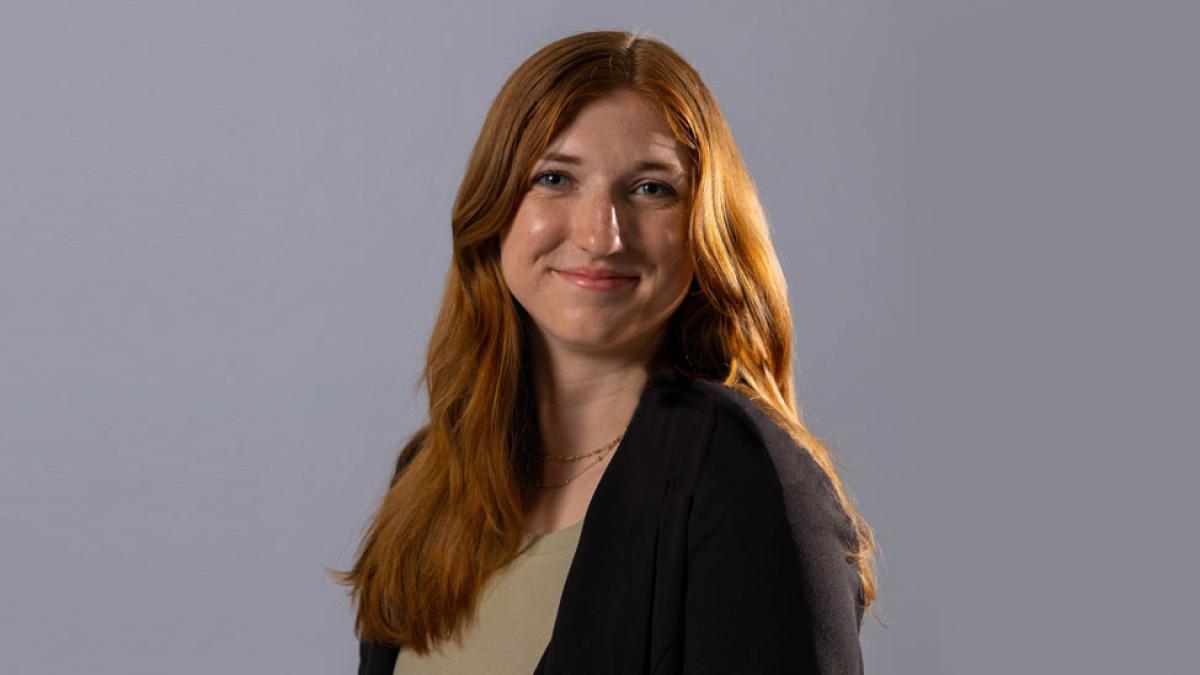
The Lubin Link Podcast

After graduating with her BBA in Arts and Entertainment Management, Emma Wannie '23 was immediately rubbing shoulders with music legends. As an Assistant Shooter/Editor at Madison Square Garden, Emma shoots concerts and events at the world's most famous arena...But it's the internal events that truly capture her heart. On this episode of The Lubin Link, Emma discusses Lubin's AEM program, how she turned her dreams into reality, and her favorite shoots so far.
This episode was recorded on December 8, 2023.
Tune into the Lubin Link podcast to hear how guests went from go-getting Lubin students to successful entrepreneurs, social media mavens, directors, CEOs, and beyond. They offer their best tips to students and share how you can make the most out of your #LubinLife.
The Entrepreneur Athlete
Jonah White-Wilson '25 is fully living the #LubinLife. Beyond being on the Pace University Men's Lacrosse Team and working on campus, Jonah took the knowledge he gained from his classes and his experience working at Pace Fit to start his own business, which focuses on delivering healthy food to his community.
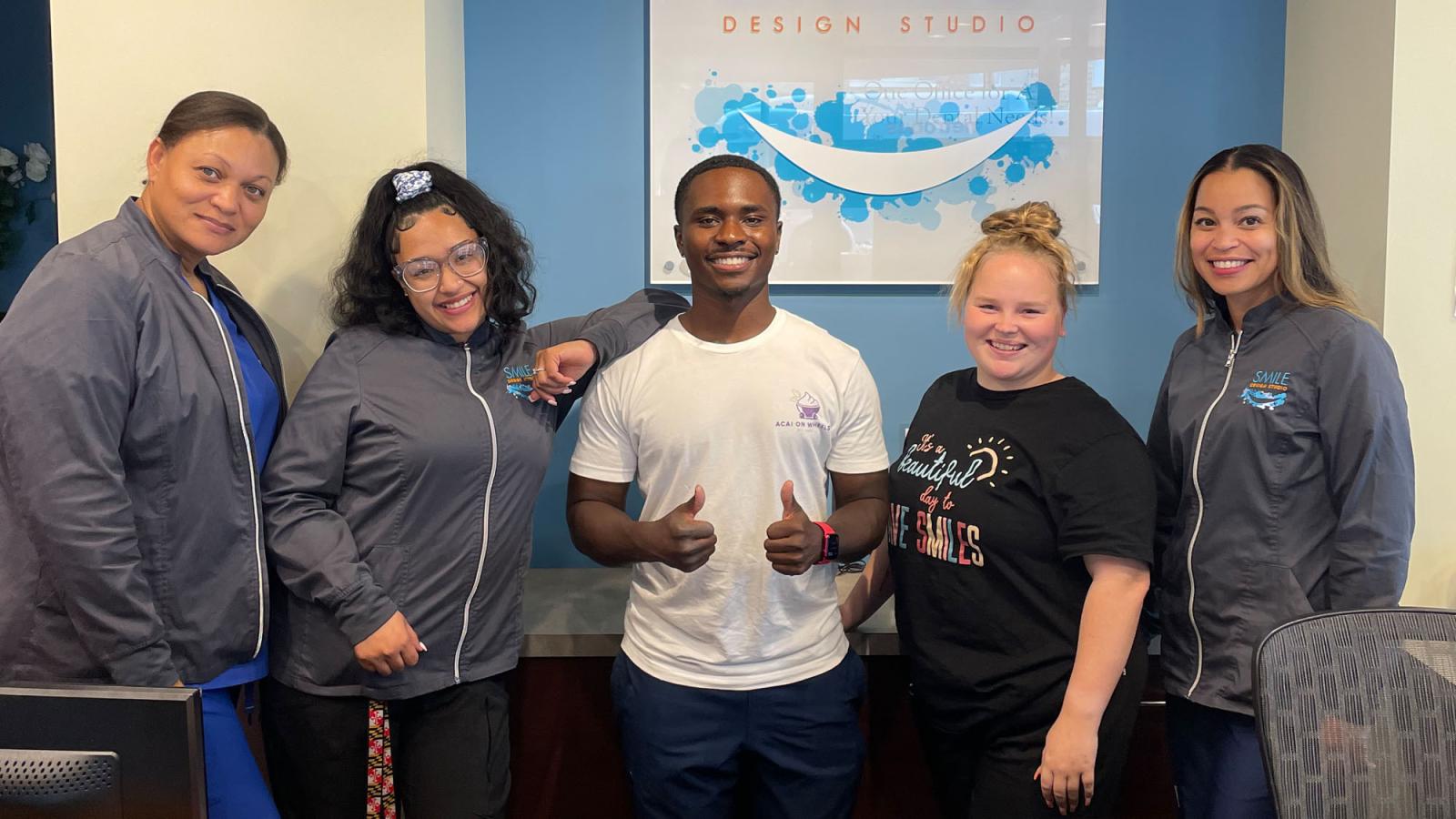
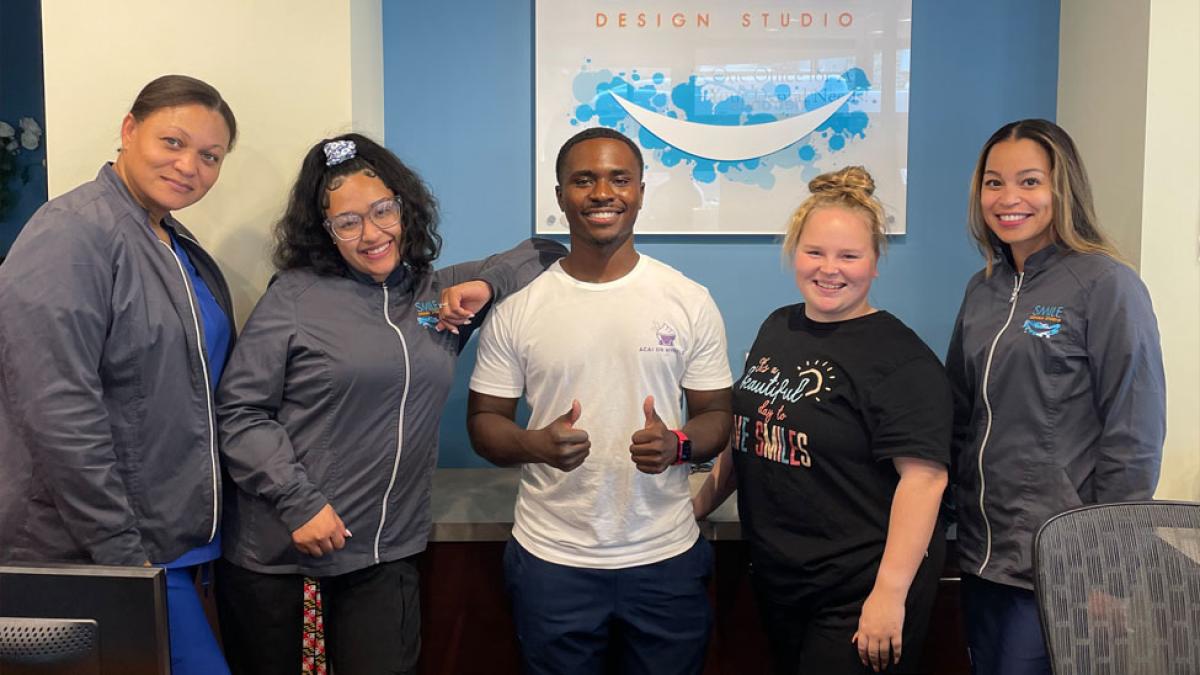
Jonah White-Wilson
Class of 2025
Currently Studying: BBA in Advertising and Integrated Marketing Communications
Member Of: Blue CoLab, Excelsior Mentors Program, and Pace University Men's Lacrosse Team
Pronouns: He/Him
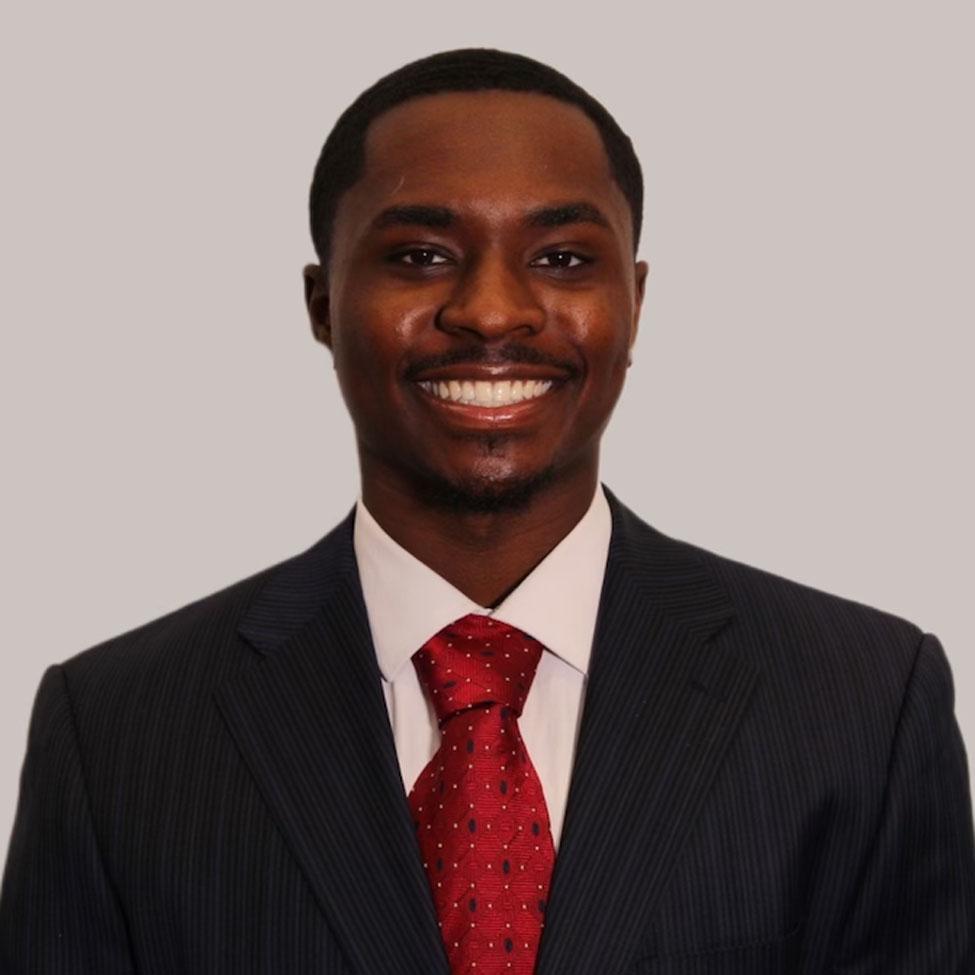
Jonah White-Wilson is fully living the #LubinLife. Beyond being on the Pace University Men's Lacrosse Team and working on campus, Jonah took the knowledge he gained from his classes and his experience working at Pace Fit to start his own business, which focuses on delivering healthy food to his community. Between his entrepreneurial efforts, leadership skills, and internship with Dynasty Consulting, Jonah will be set up for success well before he graduates in 2025.
Why did you choose Pace University and the Lubin School of Business?
I chose Pace University and the Lubin School of Business because I wanted to be prepared, in the right setting, for what I aspire to do. As a third-year student, I can attest that Lubin's professors are well-versed professionals in the business world. New York is the best place to be in order to grow in the field of business, and Lubin professors are the mentors you need to navigate it.
How have clubs on campus helped enrich your student?
I am a new member of the Blue CoLab team. Our mission is to provide Pace University and other communities with real-time water quality data. We believe everyone has the right to know what is in their water before they drink it to prevent water-borne diseases. Through information technology and the data collected from our own Choate Pond, students have created informative and unique projects like making music out of water quality data. Once I learned about this initiative on campus, I knew I had to get involved in any way I could. I brought my Lubin skills into this Seidenberg project and joined the communications team, which helps give a platform for this wonderful project.
You are spending the semester as a Marketing Intern with Dynasty Consulting. How will this experience aid in your post-graduation career search?
Dynasty Consulting is an amazing place that allows me to hone my skills, not only as a student studying marketing but as a salesman at heart. Dynasty Consulting provides real-life, hands-on experience that has helped me develop my communication skills. Being able to consult to brokers and financial advisors across the country is a demanding yet exhilarating task. I have been selling my entire life, and having the opportunity to learn from some of the most experienced salesmen in the industry is an opportunity that cannot be replicated. I certainly would not have had this opportunity if I had not chosen the Lubin School of Business.
You worked with Pace Fit as part of the Center for Student Enterprise. What was your experience like?
Working at Pace Fit was an excellent experience for me. Being the Assistant Marketing Manager, while making what many said were "the best smoothies on campus," was a pleasure. It was always fun meeting and connecting with new people. I was also making the beloved TikToks for Pace Fit. The TikToks were filled with comedy while also serving as a marketing tool and a way to push our new smoothies to customers.
Tell us about your business, Acai on Wheels.
Acai on Wheels is a mobile acai business I started in the summer of 2023. Acai on Wheels is located in the Upper Marlboro area in my home state, Maryland. I walk around my neighborhood, knocking on doors and taking appointments from customers interested in ordering acai bowls. I make them fresh right on their doorstep. We also cater events such as concerts, birthdays, office parties, and more! I started this business because I realized there was a lack of healthy food options in my area, and there was no better time than summertime to connect with my neighbors and serve them fresh, organic acai. Serving my community is a great honor, and there aren't any other great-tasting healthy options within 20 miles. I wanted to be the one to give my community a sweet treat during the scorching hot summer months.
How have your Lubin classes helped you further the success of your business?
My Lubin classes have taught me many skills that I have applied to my own business, such as budgeting, marketing, and all the ins and outs of how to run a business. There are many pros and cons to starting a business, but being a part of the Lubin School of Business made the process easier by preparing me on what to expect. Having one-on-one meetings with professors and taking in the material provided has educated me on how to build a foundation to run my business effectively and with great profitability.
You are also a member of the Pace University Men's Lacrosse Team. How will your team building skills help you in the business world post-graduation?
Being part of the Pace University Men's Lacrosse Team gives me real insight into how to work on a team. I think of my team as one big family. We work together, we have disputes, we have success, and at the end of the day, we will always be together. That's what being on a team means—friendship. Being a leader while also being a follower of others gives me transferable skills for the business world that many other people will not have. Two of the biggest skills I've gained on the lacrosse team that will help me within the business world are handling adversity and communication. Those skills are pivotal in my own business and will be pivotal in future business ventures.
Having a vast alumni network while also being on the lacrosse team provides many great opportunities. Pairing that with Career Services will open up so many doors for me after graduation. Pace University gives its students a leg up in the already-ultra-competitive business world.
What has been your favorite opportunity at Pace?
My favorite opportunity at Pace has been networking with alumni and working with Career Services. Having a vast alumni network while also being on the lacrosse team provides many great opportunities. Pairing that with Career Services will open up so many doors for me after graduation. Other universities cannot replicate this opportunity simply because New York is the "mecca" of business. Pace University gives its students a leg up in the already-ultra-competitive business world.
Do you have any advice for other Lubin students?
Please, please, please go to as many events as possible and connect with as many people as possible! You never know who you may run into. Always look professional, hold great eye contact, and if someone gives you their information or connects you with someone, actually contact them! You only have four years at Lubin to soak up all the valuable information from extremely knowledgeable people, so do not waste it!
What does #LubinLife mean to you?
We can all agree that, in high school, choosing a university that helps you reach your goals is a difficult process. However, I would do it all over again, knowing that at the end of my four years, I would be able to say that I am a product of #LubinLife. Pace University has students and faculty from all over the world—kind professors helping you in all aspects of life and a community filled with friendship. I cannot thank my teammates, coaches, professors, classmates, and mentees enough for shaping my amazing experience at the Lubin School of Business. There is no place I'd rather be than at Pace University in the Lubin School of Business.
Connect with Jonah:
A Voice for the Voiceless: Q+A with Yomara Lopez '12
Colombian-born bilingual and investigative Emmy-winning reporter Yomara Lopez ’12 is a Dyson alumna who provides a platform for underrepresented voices in the Latino community in the US and abroad.
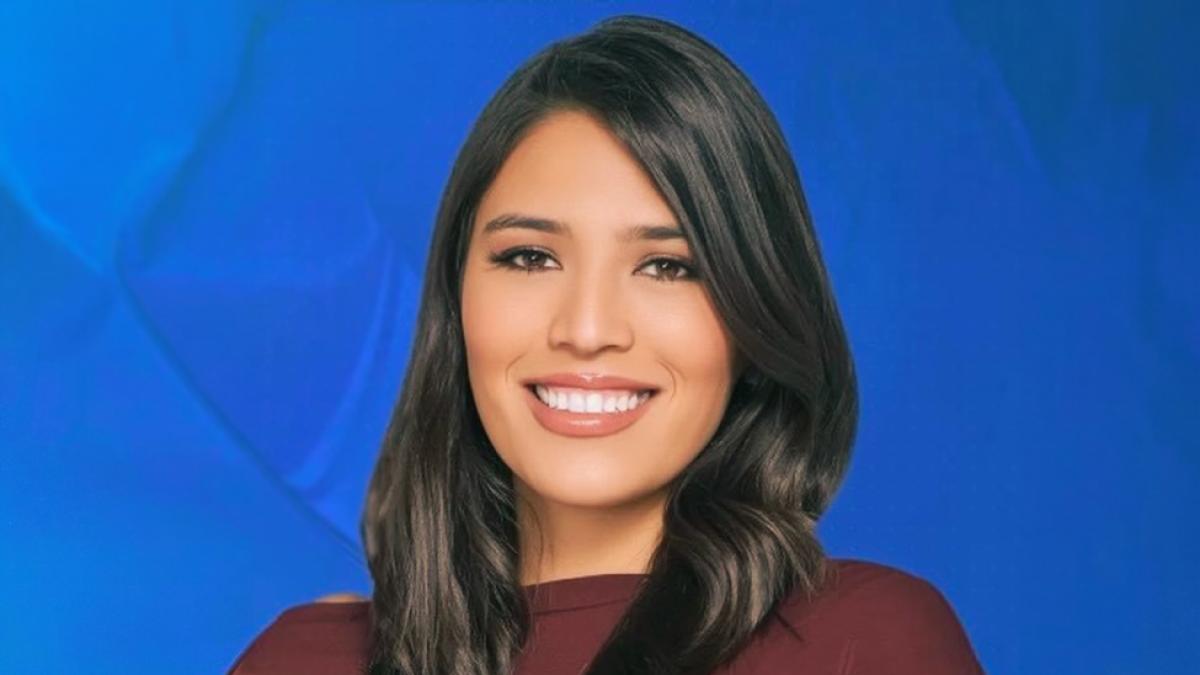
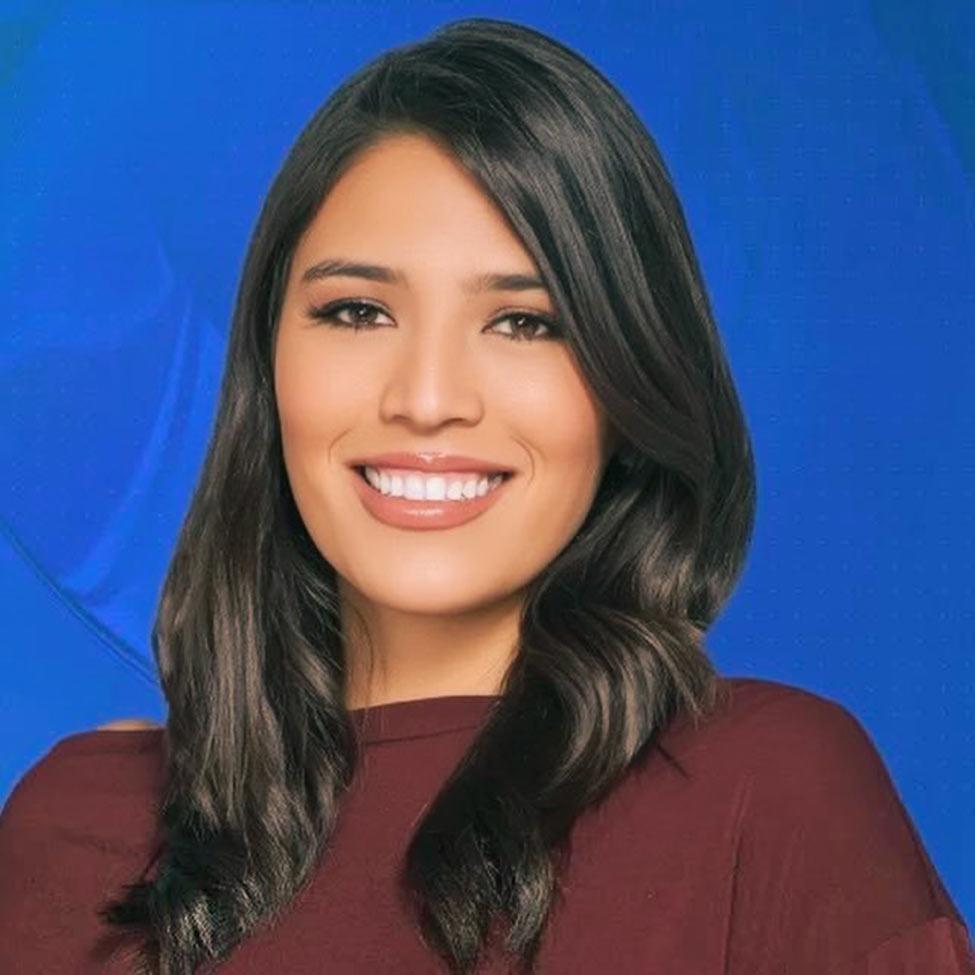
Yomara Lopez
Class of 2012
Bachelor of Arts in Communications
Yomara Lopez is a bilingual and investigative reporter, most recently for NBC Universal Telemundo in California, and three-time Emmy award winning journalist.
Please tell us more about your role and how your work is meaningful to you.
My role is to bring to light issues and concerns that are affecting the Latino community. The relationship and trust I’ve built with my viewers has allowed me to tell their stories and help them report crimes they were previously afraid to even speak about. Most importantly, my investigations have helped authorities reopen various cases of wage theft and human trafficking. One of my most recent investigations in San Jose, California, led the mayor of the city to propose an ordinance to prohibit homeless living next to schools. Investigative journalism is about affecting change with stories, and that’s why my work is so meaningful to me. If I’m not making a difference, I’m not doing something right.
Please tell us more about your Emmy wins and your role(s) leading up to them.
I won my first Emmy with Univision Sacramento in June of 2019 for my coverage of Camp Fire, the deadliest fire in the history of California. As part of this experience, I spent months in Paradise, a city that was wiped out by the fire, speaking to survivors and those who lost everything. This year, I won two Emmys with Telemundo in the Bay Area: one for best daily news report story for my coverage on a rat infestation problem in one of the biggest homeless encampments in Santa Clara County, and another for an educational piece on inmates getting a second chance in education through a college credit program at Elmwood Jail in Milpitas.
Why did you choose to major in the Bachelor of Arts in Communications?
Ever since I was a little girl, I enjoyed writing and was always curious about things that were happening in my community, and as I got older, I realized that journalism was a way that I could help those in need.
How has your degree prepared you for your career? How did you get started in your career?
The cinematography and video production classes taken at Pace helped me become a better multimedia journalist (MMJ), which means being able to shoot, write, and edit my own stories. My first job in the industry was behind the camera as an associate producer for the early morning shows on Telemundo 51 in Miami. From there, I obtained a job as a producer/reporter for an international channel called Hola TV, followed by work as an MMJ at Telemundo Oklahoma. I was also an MMJ at Telemundo Austin and Univision Sacramento.
Investigative journalism is about affecting change with stories, and that’s why my work is so meaningful to me. If I’m not making a difference, I’m not doing something right.
Why did you choose to attend Pace? Did you have any internships as a student?
I liked the program that Pace offered in communications, as well as access to internship opportunities for students (I always wanted to live in New York, so that was also a plus).
I had several internships through Pace, which included Telemundo Sports in Miami, CBS Newspath in New York City, and Telemundo in New Jersey. My internships were so helpful because they showed me what it was like to work in the industry and helped me decide that I wanted to be a reporter. Through my internship with CBS, I was offered a per diem position with 48 Hours to help translate information about illegal adoptions in Guatemala. It was then that I realized I wanted to be an investigative reporter.
Are there any challenges you have faced that you overcame and are proud of?
I was born in Bogotá, Colombia, and at 11, moved to Miami, Florida. Coming to the United States without speaking the English language was difficult, and I dealt with a lot of bullying growing up because of my accent. As I got older, I realized that my accent was part of my identity and I started to embrace it. I never thought I would be working as a bilingual reporter for Telemundo and NBC in the Bay Area and with the investigative unit team, but here I am living my dream. I never gave up and always believed in myself.
What advice would you give to our students, as they navigate their college life?
Take advantage of as many internships as possible, as they will provide you with a sense of what you want to do professionally. Most importantly, don’t give up on your dreams. There will always be hard days, but be persistent, stay focused, and believe in yourself. You’ll get there.
More from Pace
Students in the Communications and Digital Media graduate program were selected to present their timely, culturally relevant research projects at the prestigious New York State Communication Association Conference this fall. Two groups received awards for the conferences’ best graduate papers.
An Emmy-Award winning alumna’s career in sports broadcasting was built on a foundation beyond the classroom, including PaceDocs, internships, and support from the larger Pace community.
Thanks to a new designation provided by the Federal Aviation Administration, Pace’s innovative drone program is flying high. Read how Professor Kate Fink, PhD, is exploring drone usage, regulations, and preparing Pace students for the FAA's Commercial Drone Pilot License exam.
13 Best DNP Programs in New York – 2023
Pace University prepares you for nursing leadership with skills and knowledge that are in much demand. As a Pace DNP graduate, you will be trusted by employers for your job preparedness to work in diverse types of healthcare settings. If career advancement is what you desire but, a busy life is hindering you from pursuing it then here, you can do so by taking flexible part-time, evening, and online classes. The college has many of its graduates play pivotal roles in healthcare, with some of them making notable contributions to respected medical journals.
